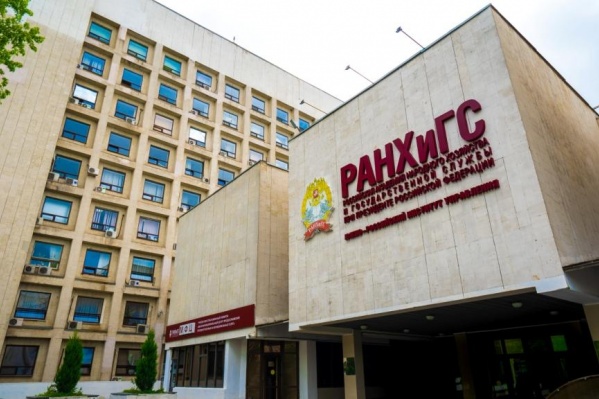This day was quite eventful for Vladimir Mau, the rector of the Russian Presidential Academy of National Economy and Public Administration. On the bright side, he was reelected to the board of Gazprom as an independent director. On the dark side he was arrested (not a thread) 

The University of РАНХиГС (RANEPA) has a special place in the Russian system of power. While the Higher School of Economics has been traditionally training the Western style expertocracy ("evidence based approach") for the Kremlin, the RANEPA would train the actual leadership 

Disclaimer: That is not to devalue the RANEPA. When it comes to the economics, social sciences, humanities, Higher School of Economics was mostly about the intellectual import from the West (not math, math is *really* good). But otherwise there's not much original thought there 

Until recently the Higher School of Economics was viewed as politically heterodox. Unlike most other schools it would defend its students persecuted for protesting rather than kick them out. That's an anomaly. But intellectually and methodologically it was unbearably orthodox
With the RANEPA it was the other way around. Standing very close to the seat of power, they would never afford a deviation from the Kremlin policy. But intellectually it was an oasis of original thought, the *real* thought, that the Higher School of Economics IMHO never was
RANEPA leadership would never quarrel with Kremlin. They were super conformist. Intellectually though they would experiment. Meanwhile, more liberal HSE could argue with Kremlin. Intellectually though it largely mimicked the most recent Western fashion. Nothing original
Why? Good question. May be it all comes to leverage. The RANEPA leverage was its proximity to Kremlin. The HSE leverage was their (perceived) proximity to the West. It was the Brahmin structure that valued its status too much to actually try doing anything interesting or unusual
I studied at the HSE, worked at the RANEPA and could feel the contrast. Being super pro Kremlin and never defending their students the way that the HSE did, research wise the RANEPA was way more open to the unorthodox topics and methods. They were not intellectually futile
HSE grads occupy lots of expert positions in the system of Russian power, mostly in finance and economic policy making. But the RANEPA is way more represented in promoting the actual political leadership. Consider the school of governors
On May 10 Putin fired five governors in one day. Many didn't see any pattern in their dismissal. May be there is none. But there is a pattern in who was appointed at their places. Four out of five finished the school of governors at the RANEPA
Since the School of governors ("Higher School of Public Administration") was founded in 2017, 46 of its grads became governors. That's a massive number, considering that Russia has only 85 regions for the governors to be appointed at
Ok, you may ask. So 4/5 out of the Putin's recent gubernatorial appointees finished the school of governors. Makes sense. But who was the fifth? Who managed to skip the school and still become a governor? 

Well, that's Roman Busargin, the new governor of Saratov Oblast. He indeed skipped the school of governors, being promoted via another social elevator - the competition "Leaders of Russia" лидерыроссии.рф 

So what do we see here? We see that theoretically Russia is a federation consisting of regions. Theoretically executive power in a region derives from the mandate of masses, given through elections 

In practice though you don't become a Russian governor by winning elections. You become one by winning crappy competitions either in the School of Governors or in the Leaders of Russia.
That's how these competitions look like. Jumping into the water from a 7 meters height rock
That's how these competitions look like. Jumping into the water from a 7 meters height rock
And yet, if power derives from the aquatic ceremony, then the ceremony is real. It is the "mandate of the masses" that is truly farcical. So the question is who made up the ceremony?
We know the answer. Both School of Governors and the Leaders of Russia are run by the same guy
We know the answer. Both School of Governors and the Leaders of Russia are run by the same guy

The same guy who appointed Putin as the FSB Chief in 1998. End of not a thread
• • •
Missing some Tweet in this thread? You can try to
force a refresh






